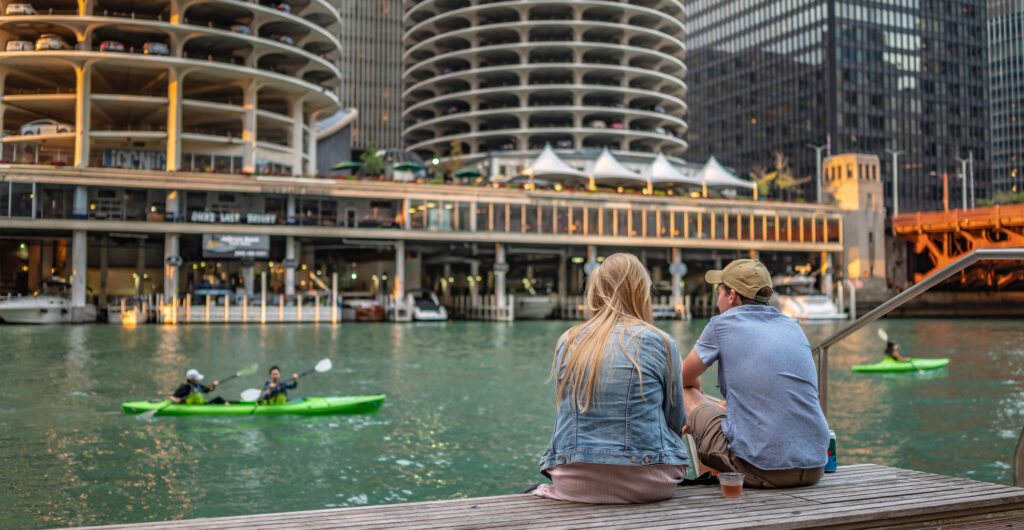Home » Chicago personal injury attorneys
This page was written and legally reviewed by Horwitz, Horwitz & Associates‘ team of Illinois Board Certified Civil Trial Lawyers.
Injuries are expensive, and taking time off work to recover can land injured parties deeper in a financial hole. If you or a loved one were hurt in an incident that wasn’t your fault, you may be able to recover total compensation for your injuries, lost wages, and other losses by filing a personal injury lawsuit.
At Horwitz, Horwitz & Associates, our experienced team of Chicago personal injury attorneys will conduct a thorough investigation into your claim so we can secure compensation for any losses caused by your injuries. Call our Chicago office at (800) 985-1819.
Our personal injury practice areas
Our firm has decades of experience helping clients who have suffered harm due to someone else’s negligence. Some of the most common cases we handle include (listed alphabetically from left to right):
- Airplane and aviation accidents
- Bicycle accidents
- Boating accidents
- Car accidents
- Class action cases
- Construction accidents
- Daycare injuries and other child injuries
- Defective products
- Dog bites
- Electric scooter accidents
- Medical malpractice
- Motorcycle accidents
- Nursing home abuse and neglect
- Pedestrian accidents
- Railroad injuries
- Semi-truck accidents
- Slip-and-fall accidents
- Uber and Lyft accidents
- Unsafe premises accidents
- Workers’ compensation
This is not an all-inclusive list. If you were hurt in an incident not listed here, please call our firm so we can best assist you.
How much does it cost to hire a personal injury attorney in Chicago?
At Horwitz, Horwitz & Associates, we understand that victims who’ve been injured due to the negligence of others are often placed into precarious financial situations. This is particularly true if an injury victim has lost their job and cannot work while they recover.
Our Chicago personal injury attorneys take these cases on a contingency fee basis. This means we will not charge any upfront or out-of-pocket costs related to your case. We only collect legal fees after we secure the compensation our clients deserve through a favorable settlement or verdict.
If we don’t win, you don’t pay. It is as simple as that.
What should I do after being hurt?
Whether you’ve suffered a head injury in a slip-and-fall or a broken arm in a car crash, taking the following steps can help you preserve your physical health and your personal injury case.
1. Find a safe place away from the source of injury
Get away from the accident site if you can do so. If, for instance, something fell off a store shelf and hit you, get to another part of the store. If you were in a car or motorcycle accident, get yourself and your vehicle away from traffic.
2. Perform a self-evaluation
Take some time to do a self-check. Are you thinking clearly? Can you move your arms and legs? Do you believe you can get up, or would it be safer if you stayed where you are? Check for apparent injuries such as broken bones, wounds, or bleeding.
3. Call 911 and ask for an ambulance and the police
Call for emergency personnel and report any apparent or suspected injuries or hazards to the dispatcher so they can send enough emergency personnel. The police will conduct an impartial investigation and will issue a final report.
4. Seek medical treatment
If the police or paramedics believe you need immediate medical attention and should be transported via ambulance, take their advice. Even if you aren’t transported to the hospital, you should seek medical attention immediately to receive a prompt diagnosis and the correct medical treatment to lead you toward recovery.
Adrenaline can mask symptoms of even severe injuries for hours or even days following the incident, so you should seek medical attention as soon as you can.
5. Take notes and photos of the scene
If it’s safe to do so and you’re physically capable, take pictures and videos of the scene, damages, and your injuries with your phone — this evidence could prove invaluable to your case. While the details are still fresh, write everything you can think of on paper or a note on your phone.
6. Collect contact information from witnesses
Get the names, email addresses, and phone numbers of anyone who saw what happened. Don’t worry about interviewing them. That will be the job of your Chicago personal injury attorney.
7. Keep a written or digital record of your experience following the accident
The more evidence you have to back up your case, the stronger that case will be. Either write down everything you’re experiencing with your injury or make an audio recording on your phone of your experiences following your incident. This can include changes in symptoms, worsening of your injuries, or changes in your mood or behavior.
8. Speak with a Chicago personal injury attorney
Once you’re in a safe place and receiving the treatment you need, contact a Chicago personal injury attorney immediately. The experienced Chicago personal injury attorneys with Horwitz, Horwitz & Associates will immediately launch an investigation to gather the facts.
Is there a deadline to file my claim in Illinois?
Illinois has a two-year statute of limitations in most personal injury cases. This means you have two years to file a lawsuit from the date you were injured. If your deadline expires, you won’t be eligible to pursue compensation from those who caused your injury.
It’s important to note that some personal injury cases have an extended deadline. Learn about exceptions to Illinois’ two-year rule.
What kinds of damages can I claim in a personal injury case?
In a personal injury case, “damages” are the monetary losses that you may recover via a lawsuit. In most cases, there are two primary categories of damages: economic and non-economic.
Economic damages
Medical bills, lost wages, and property damage are just a few examples of economic damages. They’re easy to prove because you can show documents supporting these expenses.
Non-economic damages
Putting a price tag on non-economic damages, such as mental trauma, pain and suffering, and loss of quality of life, isn’t nearly as simple. You’ll need the help of a skilled Chicago personal injury attorney to make sure you get all the compensation you deserve.
How do I find the right Chicago personal injury lawyer for my needs?
Searching for an experienced lawyer who will protect your legal rights and advocate for you can seem overwhelming.
Here are some helpful tips for finding and choosing a lawyer, but there are also resources available to help you.
If you know someone who recently worked with an attorney, ask them if they’d recommend that lawyer. Contact the Chicago Bar Association’s Lawyer Referral Service if you don’t have anyone to ask. In either scenario, it’s recommended that you read online reviews from several platforms to get a feel for what they might be like to work with.
What are things to consider when choosing a Chicago personal injury attorney?
Experience
Experience is crucial in personal injury cases where deadlines must be met throughout the process. Everything must be requested properly and timely from the very start of your case – one wrong move could harm your case. During your consultation, ask the lawyer:
- How many years of experience do they have in personal injury law?
- How many cases have they handled similar to yours?
- The extent of their trial experience–how many cases are settled, and how many go to trial?
- If they have any special accreditations or certifications within a specialty of personal injury law.
- If they’ve received any awards in the legal community.
Track record
Although an attorney might call themselves “experienced,” that doesn’t mean they have a good track record of success. It would help if you asked about the following:
- Do they consistently recover multi-million dollar settlements and verdicts for their clients?
- Have they won any awards or been recognized for their settlements and verdicts?
Communication
You need an attorney you can trust — trust is founded on good communication. This includes being open and honest with one another and being responsive to calls and emails. Ask the attorney how often they communicate with clients, if they have support staff available to assist and answer questions, and if they’ll receive regular case updates.
We’ll fight the insurance company to get you total compensation
The person or entity responsible for your injury will likely have an insurance policy. Insurance companies fight hard to protect their profits and present a formidable opposition to block your claim.
The attorneys with Horwitz, Horwitz & Associates have a long track record of defeating giant insurance corporations and earning total compensation for our clients. Nothing is more important than our client’s interests, and we fight to ensure our client’s rights and interests are protected every step of the way.
Parties who may be liable for your injury
These are just a few of the parties that may be responsible for the incident that caused your injury:
- A negligent car or truck driver
- The manufacturer of a defective product
- The owner of a property where a slip-and-fall accident occurred
- A negligent trucking company
- A medical professional who committed malpractice
How can our Chicago personal injury attorneys prove liability?
Your Chicago personal injury attorney will prove liability by thoroughly investigating accidents. We gather the proof needed to determine who is to blame and then pursue them for compensation.
What is the personal injury lawsuit process?
Although every case is different, the following briefly examines what to expect when you file a personal injury lawsuit.
1. Legal consultation
First, you speak with an attorney to determine if you want them to represent you. You’ll explain what happened and how you were hurt, and then the lawyer will give you a general idea of the strengths and weaknesses of your case.
2. Accident investigation
Once you choose an attorney, they’ll immediately launch an investigation to determine the facts of the case and to identify all liable parties.
3. Serve demand for compensation or file a lawsuit
After determining all potentially liable parties, your lawyer will send them demand letters that spell out the compensation you deserve. If they don’t want to negotiate or respond reasonably, your attorney will file a complaint to begin your personal injury lawsuit.
4. Negotiation
Your attorney will then negotiate with the insurers representing the at-fault parties. Most cases result in a settlement and don’t go to trial.
5. Take the case to trial
If the defendant refuses to settle, your case will go to trial, where both sides will present their arguments, evidence, and testimony, and a jury will decide how much compensation you may receive.
Why should I visit the doctor so soon after my injury? Can’t I rest first?
You need to see a doctor immediately to determine how badly you’re hurt and what treatment is required. Although your health is very important, seeing a medical professional is also important for your case.
If you don’t, the insurance company could claim you’re not actually hurt or an unrelated event caused your injury. If they’re successful, you won’t be able to obtain the compensation you deserve.
Why hire Horwitz, Horwitz & Associates
You won’t find a team of Chicago personal injury attorneys who are more passionate – or more effective – than the lawyers with Horwitz, Horwitz & Associates. We’re ready to use our skills and knowledge for you.
Case results for Chicago personal injury victims
$64 Million
Following five years of legal proceedings, including a one-month jury trial in Cook County, our client—an IronWorker—was awarded $64 million by a jury. The verdict came after the man sustained severe spinal cord injuries from falling head-first from a beam. This ruling marked the largest individual jury verdict for personal injury in Illinois history.
$40 Million
Lawyers Mike Wierzbicki and Michael Carter, from Horwitz, Horwitz & Associates, successfully negotiated a settlement surpassing $40 million with a trucking company. The settlement stemmed from a collision between a semi-truck and a car, causing severe burn injuries to the car’s driver.
$32.15 Million
Attorneys Clifford Horwitz and Michael Carter, specializing in personal injury cases in Chicago, obtained a settlement of $32,150,000 following the death of a construction laborer due to the collapse of iron beams at a Chicago, IL construction site. The litigation spanned four years and was resolved just before trial.
Call a trusted Chicago personal injury attorney today.
If you or somebody you love has sustained an injury caused by another person’s careless or negligent actions, contact an attorney as soon as possible. At Horwitz, Horwitz & Associates, our skilled and experienced team is ready to investigate your case thoroughly. We aren’t afraid to confront aggressive insurance carriers and at-fault parties.
When you need an Illinois personal injury attorney, please call (800) 985-1819.











